- April 10, 2025
-
-
Loading
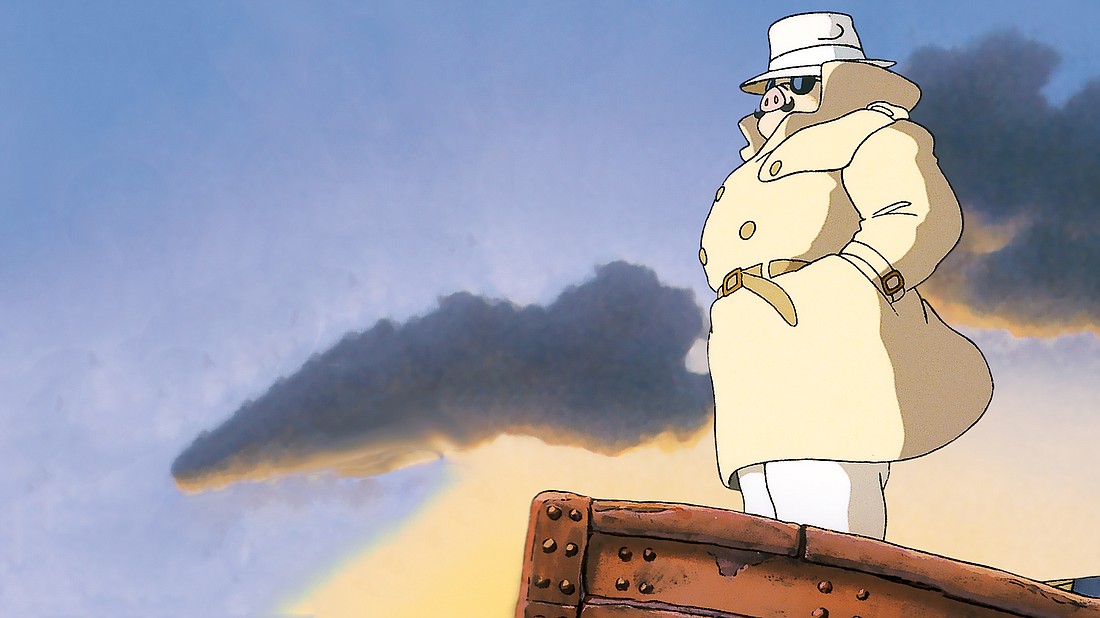
How is Alyssa doing on "Big Brother"?
Cue up a sad dirge. Sarasota's own Alyssa Lopez was eliminated from CBS reality show "Big Brother" on Day 65 of the summer run. She did make it far enough to become a member of the jury house, however, meaning she'll help decide the winner live on Sept. 29.
YouTube (or gaming consoles), unrated, 50-60 hours of content
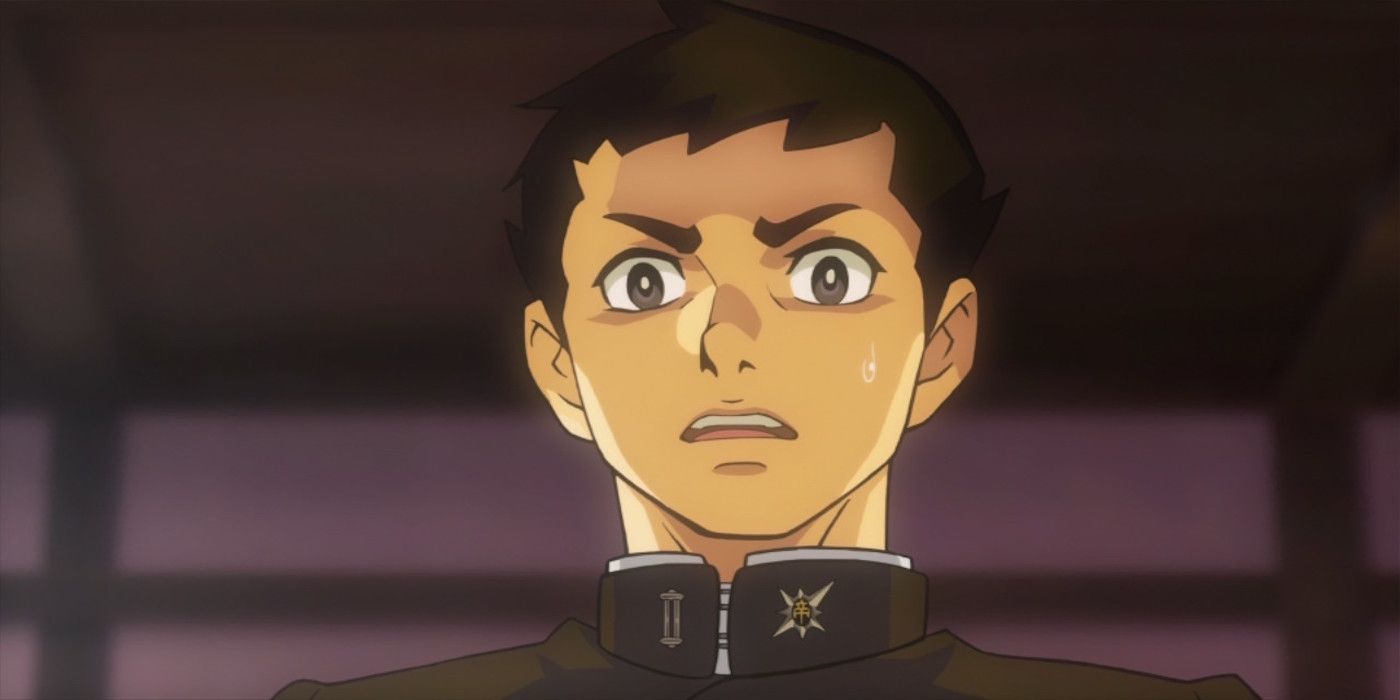
"Objection!"
That's probably what my readers are thinking when they realize I'm writing about a video game again. Yes, yes, it's not exactly what this column is for, but "The Great Ace Attorney Chronicles" is a bit different. Plus, the characters in the game say "Objection!" all the time, so, you know, we've gone full circle here.
The GAAC — which is what I'll be referring to the game as from now on, for the sake of everyone — is actually two games in one, the first one carrying the subtitle of "Adventures" and the second one "Resolve." The GAAC games are visual novels, telling the story of fledgling Japanese defense lawyer Ryunosuke Naruhodo as he leaves his homeland to practice law in England alongside his best friend, Kazuma Asogi, and his judicial assistant, Susato Mikotoba. There are also a handful of hand-drawn cutscenes that advance the story at certain parts. There's an overarching narrative that connects the two games, but the games also each contain five "cases" for you, as Naruhodo, to solve.
Now, I know what you're thinking: Defense lawyers don't solve cases; they just prove someone's innocence. And that's true. But these games, which take place in the Victorian era, get around this issue by having Naruhodo team up with a certain London detective known all over the world … that's right: Herlock Sholmes.
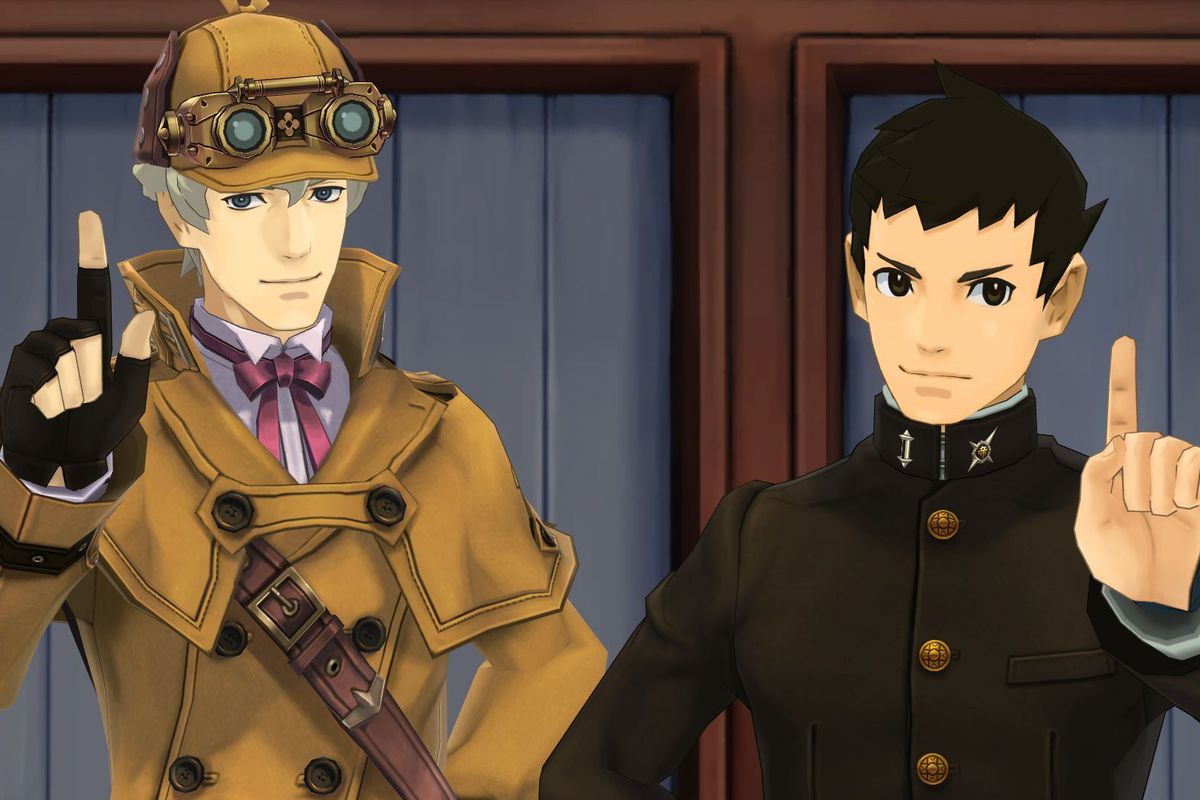
No, that's not a typo or a spoonerism. In these games, you team up with a world-famous detective named Herlock Sholmes. You might think this is just a silly way of getting around the copyright that remains on 10 of Arthur Conan Doyle's stories in the U.S. until 2023 — and, in some respects, it is — but Herlock Sholmes has a character history of his own, appearing in several Arsene Lupin stories written by Maurice Leblanc in the 1900s.
So there you go. Your fun trivia fact for the day. The games have some fun with the silly name, with some characters calling the detective "Herr Lock Sholmes" as if he is a wealthy German patriarch, not registering Herlock as an actual name. And Sholmes' dialogue is often hilarious. The game portrays him as a tech weirdo and a self-proclaimed genius who, though he has solved many cases, is wrong as often as he is right and needs you to correct his theories.
So you and Sholmes go around to different crime scenes and try to parse what happened. The cases play out a bit like soap operas, with the actual method of murder often being completely different that how it appears at first blush, as are the motivations. But you will have to do some actual deduction work to get there, linking together pieces of evidence to make a coherent theory, plus interrogating witnesses — often over-the-top caricatures played for laughs, until they aren't — to get them to spill their reluctant guts. It's a satisfying system that takes some wild turns in later stories.
I don't want to say too much about the overarching story, but it deals with some surprisingly heavy subjects, including racism, Japan-Britain economic relations and, of course, lots of murder. Pretty much everyone in London save for Sholmes and his partner, a young girl named Iris, looks down on you and your crew for being from Japan, though some are more … let's say overt about their feelings than others. And some very powerful people don't want you to succeed in finding justice on London's streets. But you'll show them.
Or you can just watch it happen. The cool thing about The GAAC, and the reason I'm including it here, is that because there's about a 90-10 dialogue to game play ratio, you can sit back and take it in like you would a TV show. The whole thing is on YouTube for free, separated case by case, with each case taking several hours. No joke, the video for the final case of game one (which is a mid-season finale of sorts) is nearly 10 hours long. Again, not a joke. Now, that's the exception, not the rules; most cases are four to five hours. But still, when I call the GAAC experience a binge, I mean it. There's a ton to sink your teeth into here.
If you happen to have a Playstation 4/5, a Nintendo Switch or a Steam account, though, I recommend you play through the game yourself. It's quite fun to crack the cases yourself. It retails for $40 most places.
HBO Max, rated PG, 94 minutes
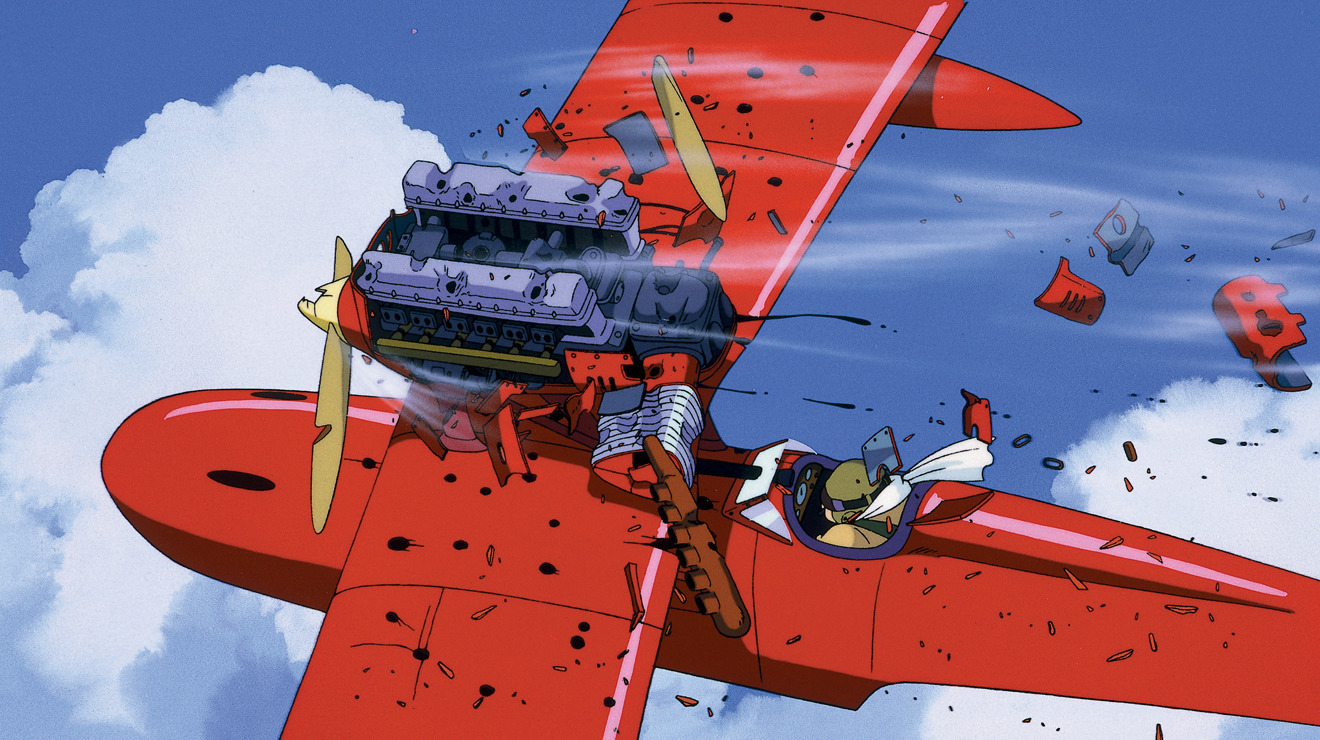
Full disclosure, I was gearing up to write about a completely different movie — Michael Mann's "Miami Vice" — when I discovered that it is no longer streaming anywhere. I didn't want to recommend something you had to rent, so I'll write about "Miami Vice" whenever its back streaming somewhere. (Spoiler: It's an unheralded American cinema masterpiece, and you should watch it … however you can.)
Instead, sticking with the Japanese theme I have going today, I'm writing about "Porco Rosso," which is an unheralded Japanese cinema masterpiece. At least, it's unheralded in America. I have never had a conversation about this movie with anyone in my life despite it being a Hayao Miyazaki picture. But it's on HBO Max and a few months ago, I decided to give it a watch because why not, it's Miyazaki, how bad could it be? Turned out to be one of the better decisions I have made in 2021 because "Porco Rosso" absolutely rips from the jump and never lets up. I think the easiest way to break down this movie is via Q&A format, so let's move to that now.
Who or what is "Porco Rosso" about?
It is about Marco Rossolini, an Italian WWI fighter pilot who is cursed to look like a pig. He looks like this:
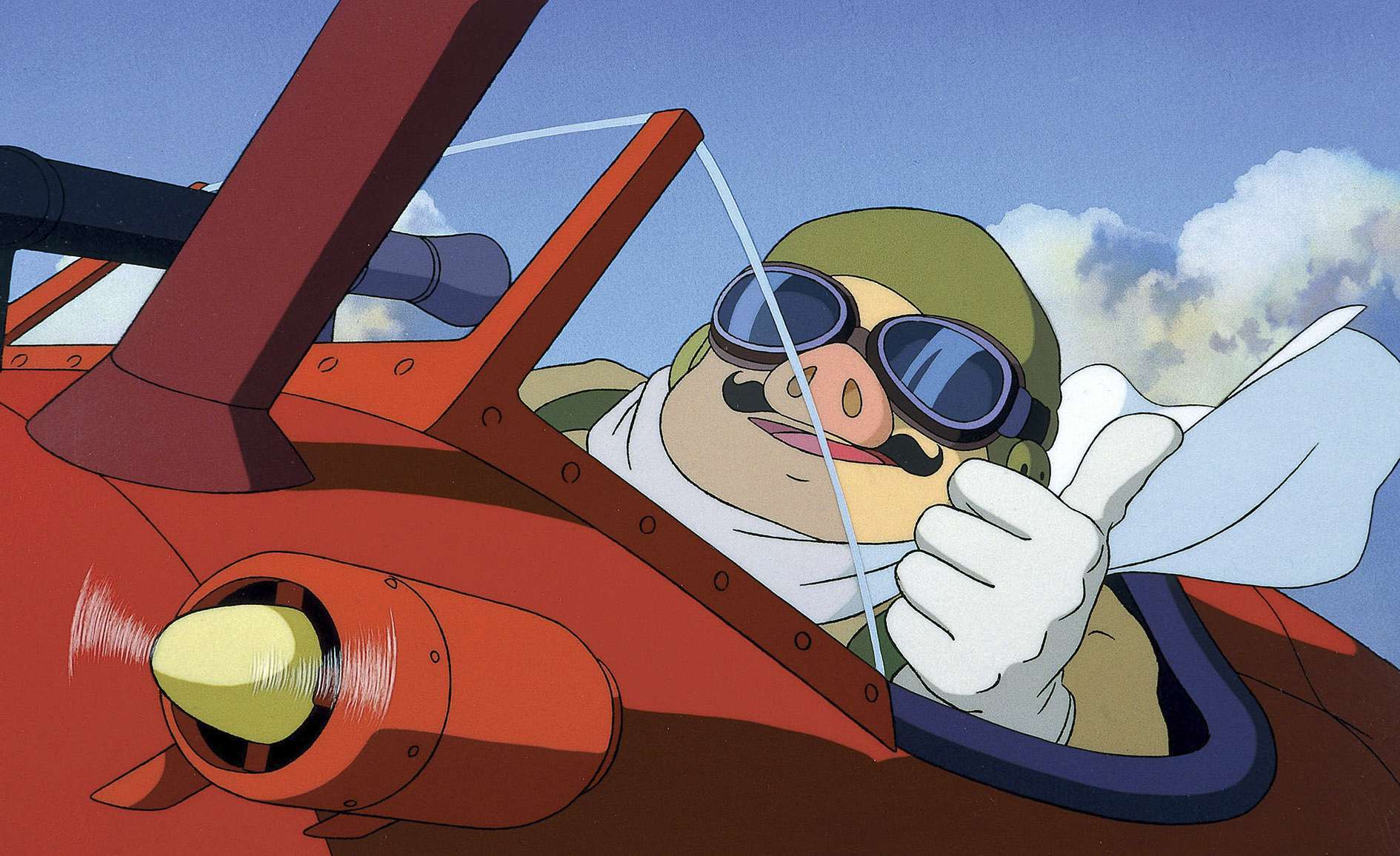
Sorry, what?
Yeah. This isn't one of those "all animals can talk" things, which you might think from the poster. He's the only one. It's not really explained why this happens, though there are theories out there. It's honestly not that important; the fact, is Marco is a pig. He is voiced by Michael Keaton in the English dub.
OK … so what does Marco do in the movie?
He becomes the epitome of suave.
… Are you going to exp-
Of course I'm going to expand on that. Marco, when the film begins, is a bounty hunter. He has deserted the Italian army because, we soon learn, he watched many of his fellow Italian pilots die in action, which got him thinking about what the point of the war was, why they had to die for their country. He couldn't find a good answer. Marco becomes disillusioned, then angry, so he goes on the run.
Now he only takes to the skies for the good of humanity, gunning down sky pirates (!) by day and having flirtatious dinners with Gina, a hotel and club owner, at night. Gina (Susan Egan) was previously married to Marco's friend Bellini, but Bellini was killed in action two days after the wedding. It was Marco who helped Gina work through her grief over Bellini's death. She has a deep love for him because of that, but for some reason Marco refuses to believe she'd ever love a man like him — a pig — so he never makes a move, content with giving her longing glances.
Marco also smokes a ton of cigarettes and says things like "I'd rather be a pig than a fascist." He might be the coolest character in film history.
All right, he does sound cool as hell. But what is the actual plot of this thing?
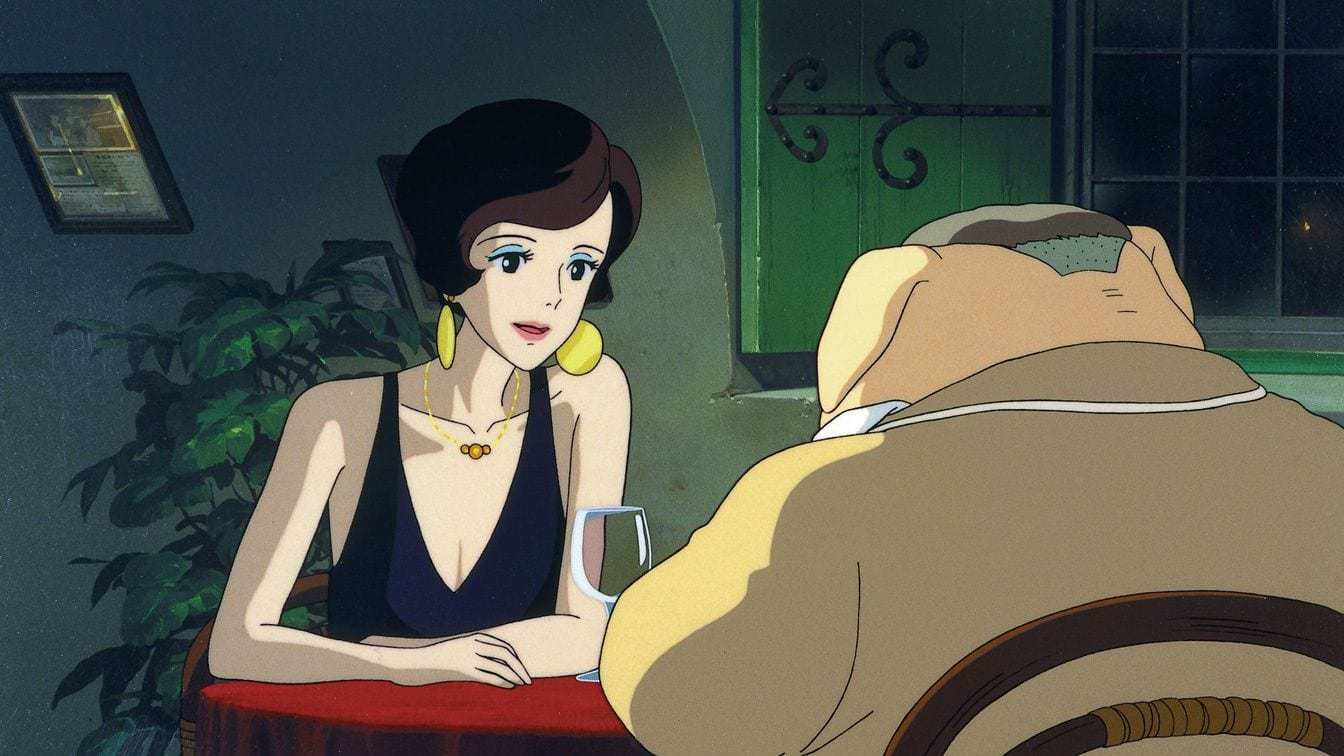
There … isn't much of one. At one point, a hotshot American pilot named Curtis (Cary Elwes) visits Gina's club and falls in love with her and proposes on the spot. She declines because, she tells him, she's waiting for Marco. This pisses Curtis off, so he goes to hunt down and kill Marco because he's a MAN'S MAN, and that's how men deal with not getting their way, understand!
The rest of the movie goes like this: Curtis and some sky pirates who also hate Marco ambush Marco, but he survives. Marco sneaks into Italy to get his plane repaired by his trusty mechanic (and the mechanic's genius granddaughter), then Marco just kind of hangs out and thinks about life for a while before returning and challenging Curtis to a final duel.
"Porco Rosso" is propulsive and leisurely all at once. It's almost a magic trick. Not much happens, but the viewer is never bored. There's always a new character being introduced, a new gorgeous shot of a plane in the sky or the sparkling sea to gawk at, another romantic line being dropped, in the ethereal, mysterious sense. And it does it in an hour and a half.
Sounds like a good time, certainly. But does it have the emotional resonance of other Miyazaki movies?
To me it does. It might not have brought on the waterworks like "Spirited Away," but I did find it to be a genuinely moving film about what it means to be a good person, specifically a good man, in the modern world and how the classic notions of masculinity can fit into that. Apparently, Japan was having these conversations long before we were, but it certainly makes for a relevant watch today.
Also, the romance stuff is so good, especially toward the end. Marco and Gina forever.
Great. Anything else we need to know?
Not really! It's a wonderful film and one of the ones where I think the English dub is as good as the Japanese version, so if you don't like subtitles, no worries.
How do I usually end these Q&As, by the way?
Beats us.
Well, I guess "awkward confusion" is as good a way as any.